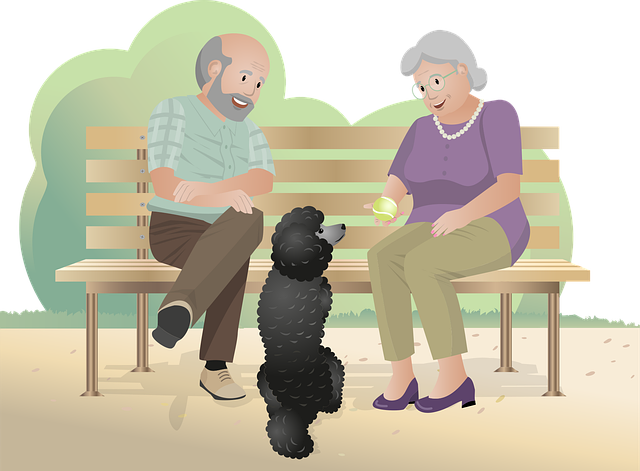Elderly Companion Services: Boosting Mental Well-being for Seniors
Loneliness among the elderly is a growing health concern, with significant mental and physical impac…….
In an increasingly aging global population, elderly companion services have emerged as a vital support system, ensuring the well-being and independence of older adults. This comprehensive article aims to explore the multifaceted world of companion care, its benefits, and its role in addressing the unique needs of seniors. From defining core services to delving into global trends and technological innovations, we will provide valuable insights for caregivers, policymakers, and individuals seeking to navigate this essential aspect of senior care.
Definition: Elderly companion services refer to a range of non-medical assistance provided to seniors in their homes or communities, primarily focusing on social interaction, companionship, and help with daily tasks. It involves dedicated professionals who offer emotional support, assist with personal care, and facilitate engagement in various activities.
| Core Components | Description |
|---|---|
| Social Interaction | Companions engage in conversations, play games, or participate in hobbies to combat loneliness and isolation. |
| Personal Care Assistance | Help with grooming, bathing, dressing, medication management, and meal preparation ensures seniors’ physical comfort and safety. |
| Errand Running | Running errands, such as grocery shopping, picking up prescriptions, or paying bills, allows seniors to maintain independence. |
| Transportation | Companion services may include transporting seniors to medical appointments, social events, or community activities. |
| Home Management | Light housework, laundry, and organizing the home contribute to a clean and safe living environment. |
| Crisis Intervention | Companions can provide immediate support during emergencies, ensuring prompt response and safety. |
The concept of companion care is not new, but its formalization as a specialized service has evolved over the past few decades. Historically, families often took on these roles, especially in smaller communities. However, with changing family dynamics and an aging population, professional companion services have become increasingly necessary. Today, these services cater to a wide range of needs, from basic companionship to more intensive support for those with dementia or mobility issues.
Elderly companion services have gained significant traction worldwide, driven by the growing elderly population and changing societal attitudes towards aging. According to the World Health Organization (WHO), the number of people aged 60 and over is projected to reach 2.1 billion in 2050, accounting for 22% of the global population. This demographic shift has led to a corresponding rise in demand for companion care services across various regions.
Regional Variations:
Trends Shaping the Industry:
The economic landscape of elderly companion services is dynamic and multifaceted, involving various stakeholders and revenue streams.
Market Dynamics:
Investment Patterns:
Economic Impact:
Technology has revolutionized companion care, enhancing its quality and accessibility.
Remote Assistance: Video calling platforms enable companions to conduct virtual check-ins, offer emotional support, and assist with basic tasks remotely. This technology is particularly valuable for seniors living in remote areas or those with limited mobility.
Wearable Devices: Smartwatches and activity trackers can monitor vital signs, detect falls, and alert caregivers or emergency services. These devices promote safety and enable companions to provide proactive care.
Mobile Applications: Dedicated apps facilitate communication between clients and caregivers, allowing for easy scheduling, task management, and expense tracking. Some apps also offer gaming and cognitive engagement activities for seniors.
Artificial Intelligence (AI): AI-powered virtual assistants can assist with reminders for medication, appointments, and social interactions. These tools have the potential to improve adherence to care plans and enhance overall well-being.
Elderly companion services offer a multitude of advantages for seniors, their families, and caregivers:
While companion care is a vital component of senior support, it also presents several challenges:
The future of elderly companion services is bright, driven by an aging population, technological advancements, and growing recognition of the importance of social care. As the industry evolves, several trends and developments are expected:
In conclusion, elderly companion services play a pivotal role in supporting seniors, enhancing their quality of life, and addressing the challenges of an aging population. As technology continues to shape the industry, the future looks promising for both caregivers and those seeking companionship and assistance in their golden years.

Loneliness among the elderly is a growing health concern, with significant mental and physical impac…….

The rising demand for Elderly Companion Services is driven by an aging population facing physical li…….

Elderly individuals require tailored support for home maintenance and companionship as they age, add…….

Elderly Companion Services play a vital role in senior care, offering both meal preparation tailored…….

Elderly Companion Services are vital for maintaining the well-being and independence of older adults…….

Managing medications is a significant challenge for seniors, impacting their health and well-being……..

Elderly Companion Services are a crucial addition to dementia care plans, addressing social isolatio…….

Elderly Companion Services are vital for enhancing senior quality of life, offering personalized sup…….

Elderly Companion Services are a vital support system for seniors, enhancing their quality of life b…….